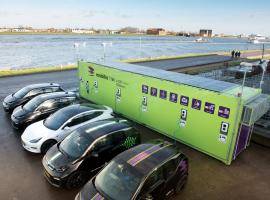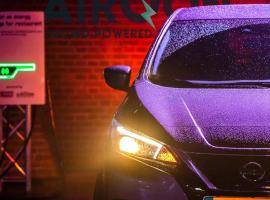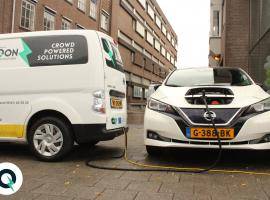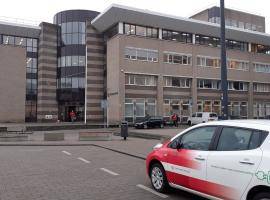To better understand to what extent the public that attends events is aware of environmental challenges, and especially to know their willingness to become an active part of the solutions adopted to go for more sustainable cities, in 2021 more than 800 people were interviewed, especially regarding their impressions of the environmental issues and solutions AirQon addressed. This sample represented almost 5% of the public who attended Ploegendienst Festival 2021.
75.2% of people interviewed considered ‘important’ or ‘very important’ that an event organizer takes measures to organize it sustainably. The measure that generated the most consensus was using durable cup system, with 47.5% of the people agreeing on rating it as ‘very important’, closely followed by using pocket ashtrays. This fact really draws the attention because using them is an individual action in spite of being promoted by the event organizer. This shows how sustainability begins with oneself and represents, at the same time, a firm respect and awareness for the environment.

1 – very low; 2 – low; 3 – medium; 4 – high; 5 – very high (Source: Kairos Events)
They are followed in importance by limiting the amount of food and residual waste, limiting emissions of harmful substances in relation to personal health, reducing CO2 emissions and undertaking measures to reduce air pollution by replacing diesel generators with electricity. 25% of respondents highlighted the latter kind of actions, since they can contribute to greener events by switching to power sources like electricity distribution network supplies, battery packs and, of course, electric cars.
So, it can be stated that attendees notice the impact of sustainable actions undertaken at local level. Hence, people going to an event perceive the externalities and negative effects that AIRQON intends to mitigate or even avoid. Asked about the nuisance of dust, soot and smoke, smoking visitors were listed first by the interviewed attendees, followed by diesel generators, food trucks or food courts, and campfires. Therefore, people resulted to be concerned with the environment without too much direct nuisance of these sources.

Awareness and personal commitment are therefore a reality. And that involvement is a very positive factor for the success of AirQon as a sustainable power solution: 90.6% of interviewed people would not be bothered if they were asked for some efforts in terms of sustainability as attendees.
This research on engagement has been also complemented by the Breda digipanel in the year 2021, surveying a total of 2,245 residents of the city. For them, the most relevant initiatives were those aimed at limiting emissions harmful to people's health –this is very important for 54.4% and important for 28.2% of them–, followed by those measures oriented to reduce waste –very important for 53.3% and important for 33.3%– and to reduce harmful emissions to the environment in general –very important for 50.2% and important for 28.7%–. Two other types of measures, aimed at reducing noise pollution and odor nuisance, do not reach the same consideration for those people surveyed, although they were considered very important or important for 71.1% and 62.5%, respectively.
In addition to this, deep diving into actions that event organizers can carry out in particular, the one that gathers the most consensus is avoiding the use of plastics and replacing it with sustainable materials –very important for 59.8% of those citizens surveyed–, followed by the substitution of diesel generators for electricity provided from the distribution network –very important for 39.5% of the people. In this survey it was highlighted the importance of replacing generators by AirQon, so events use energy from electric vehicle batteries: this was considered very important or important for 62.1% of respondents.
Consequently, mobility, which can be fully considered as a service, is in full evolution towards these new sustainable applications to power events, homes, businesses, etc. thanks to the latest advances in technical performance of electric vehicles combined with an innovative solution like AirQon. This is a greener, more efficient model that contributes to air quality improvement in our cities and fits perfectly into the new models based on sharing, flexibility and versatility.









































